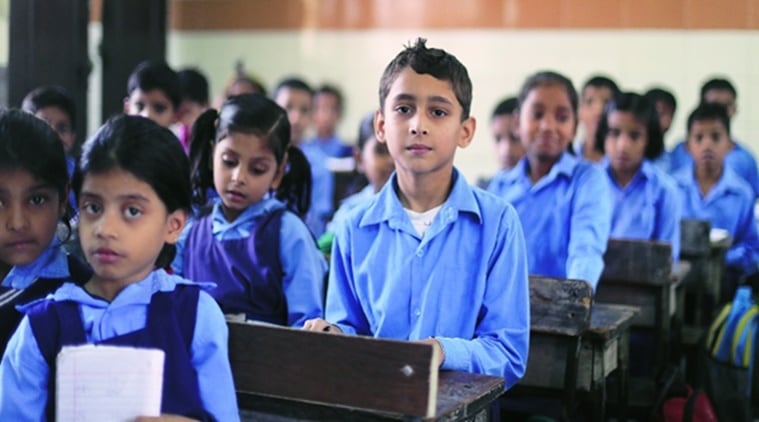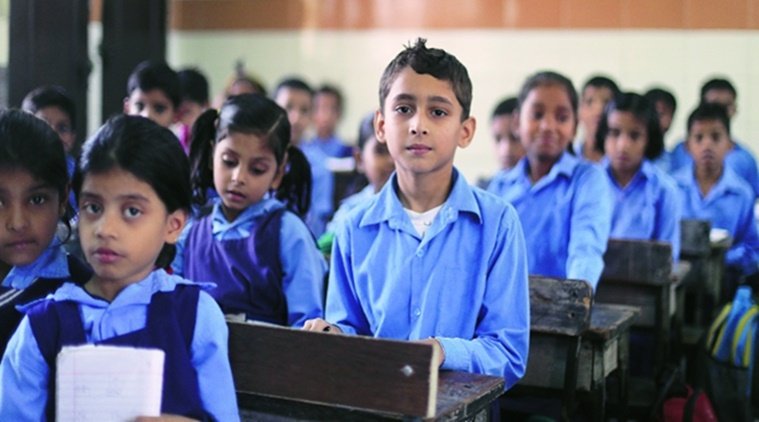
Two members of the government-appointed committee led by scientist K Kasturirangan are learnt to have objected Monday to their chairperson’s decision to revise a contentious paragraph in the draft National Education Policy (NEP) 2018, dropping a reference to Hindi and English in the recommendation on the three-language formula.
Following protests by political parties, mainly in Tamil Nadu, on what they called the “imposition” of Hindi, the HRD Ministry, at Kasturirangan’s behest, has shared a revised document on its website, which dropped the recommendation that stipulated the languages that students must choose to study from Grade 6.
Committee members Ram Shankar Kureel, former founder vice-chancellor of Baba Saheb Ambedkar University of Social Sciences in Madhya Pradesh, and K M Tripathy, former chairperson of Uttar Pradesh High School and Intermediate Examination Board, are learnt to have registered their opposition to the revision of the draft with the government.
Responding to an email sent by an HRD Ministry official, informing all committee members of the change effected at the behest of Kasturirangan, Kureel is learnt to have called the move unfortunate, while Tripathy objected to the changes made without consulting the committee members — especially since the changes had been discussed and decided against during the panel’s deliberations. The panel has a total of 11 members.
When contacted, Tripathy refused to comment on the matter. Kureel told The Indian Express: “The committee had submitted the hard copy to the HRD Minister (on May 31) and that is the report of the NEP. I stand by that report. The three-language formula is in the interest of national integration.” He did not wish to comment any further.
The formula, the opposition
The three-language formula, dating back to 1968, means students in Hindi-speaking states should learn a modern Indian language, apart from Hindi and English and, in non-Hindi-speaking states, Hindi along with the regional language and English. Tamil Nadu has always opposed this policy, and the new row is over the draft NEP proposing its continuation.
Advocating for bringing in flexibility in the implementation of the three-language formula, the earlier version of the draft NEP, uploaded on the ministry’s website on May 31, read: “In keeping with the principle of flexibility, students who wish to change one of the three languages they are studying may do so in Grade 6, so long as the study of three languages by students in the Hindi-speaking states would continue to include Hindi and English and one of the modern Indian languages from other parts of India, while the study of languages by students in the non-Hindi-speaking states would include the regional language, Hindi and English.”
The revised version states: “In keeping with the principle of flexibility, students who wish to change one or more of the three languages they are studying may do so in Grade 6 or Grade 7, so long as they are able to still demonstrate proficiency in three languages (one language at the literature level) in their modular Board Examinations some time during secondary school.”
The draft NEP was submitted to the new HRD Minister Ramesh Pokhriyal Nishank on May 31, following which it was made public for feedback and suggestion.
The earlier version of the draft’s pitch for the proper implementation of the three-language formula in schools across the country drew strong reaction from the DMK, which dubbed the suggestion as an effort to “thrust” Hindi on Tamil Nadu.
The criticism forced the HRD Ministry to issue a statement Saturday clarifying that the policy was only a draft and will be finalised after incorporating public feedback and views of the state governments.
[“source=indianexpress”]





